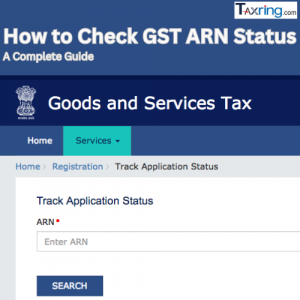Missed the ITR deadline? Don't worry! You can still file your Income Tax Return before
December 31st, 2024, with a
belated return. Need help? Contact us, Taxring experts, and we'll guide you through the process. Avoid penalties and file your belated return with ease. Reach out to us today!
Before diving into what a tax audit entails, let’s first clarify the term “audit.” An audit is defined as an official inspection of an organization’s accounts, typically performed by an independent entity. It involves a systematic review or assessment of various aspects of a business.
Latest Update: Extended Deadline for Tax Audit
The Income Tax Department has recently extended the deadline for filing the audit report for the financial year 2023-24 by 7 days, moving it from September 30 to October 7, 2024. This extension is aimed at addressing the challenges taxpayers have faced with the electronic income tax portal.
What is a Tax Audit?
A tax audit is a specific examination of the accounts of a business or profession from an income tax perspective. It simplifies the process of income computation for filing tax returns. The income tax law mandates tax audits for certain taxpayers based on their financial activities.
Objectives of a Tax Audit
The main objectives of conducting a tax audit include:
1. Accuracy Verification:Ensuring proper maintenance and correctness of books of accounts, certified by a Chartered Accountant (tax auditor).
2. Discrepancy Reporting: Noting any discrepancies observed during the audit of the books of accounts.
3. Regulatory Compliance: Reporting essential information such as tax depreciation and adherence to income tax laws.
These objectives help tax authorities verify the accuracy of income tax returns filed by taxpayers, making the assessment of total income and claims for deductions more straightforward.
Turnover Limit for Tax Audits
Taxpayers are required to undergo a tax audit if:
- Business Turnover: Sales, turnover, or gross receipts exceed Rs 1 crore in a financial year.
- Professional Receipts: Gross receipts exceed Rs 50 lakhs
However, amendments made in the Finance Act 2021 raised the threshold for tax audits to Rs 10 crores if cash transactions do not exceed 5% of total transactions.
Categories of Taxpayers Mandated for Audit
| Category |
Turnover Limit |
| Business (non-presumptive |
Exceeds Rs 1 crore
|
| Business (presumptive) |
Claims lower profits than prescribed |
| Profession |
Gross receipts exceed Rs 50 lakhs |
| Business Loss |
Exceeds Rs 1 crore |
Audit Report Requirements
A tax auditor must furnish the audit report in specific formats:
- Form 3CA: For businesses or professions already mandated to be audited under another law.
- Form 3CB: For those not required to be audited under other laws.
- Form 3CD: Contains particulars related to the audit report.
Important Dates
- The last date for completing the income tax audit is October 7, 2024 for FY 2023-24.
- For taxpayers involved in transfer pricing audits, the deadline extends to October 31, 2024.
Filing the Tax Audit Report
Tax audit reports must be submitted online by the auditor using their login credentials. After submission, the taxpayer can either accept or reject the report in their portal. If rejected, the process must be repeated until acceptance.
Consequences of Non-Compliance
Failing to conduct a mandatory tax audit can result in penalties, including:
- 0.5% of total sales, turnover, or gross receipts.
- A flat fee of Rs 1.5 lakh
Penalties may be waived if the taxpayer can demonstrate a reasonable cause for non-compliance, such as natural disasters or significant employee turnover.
Conclusion
Understanding the intricacies of tax audits is essential for taxpayers. By ensuring compliance, you not only avoid penalties but also simplify your tax filing process. If you have questions or need assistance with your tax audit, consider consulting with a tax professional..
Related articles: Income tax audit u/s 44ab , http://Books of account 44aa , How to file Belated return if you missed ITR deadline?
Frequently Asked Questions About Income Tax Filing and Audits
Q. What is an income tax audit under Section 44AB?
Ans.A tax audit under Section 44AB is conducted by a Chartered Accountant to verify an entity's books of accounts when gross receipts exceed specified limits
Q. What documents are typically audited?
Ans.Commonly audited documents include cash books, ledgers, bank statements, and sales/purchase invoices.
Q. What if I miss the tax audit deadline?
Ans.Failure to comply may attract penalties as described above, making it crucial to adhere to deadlines.
Q.How to Claim an Income Tax Refund After the Due Date?
To claim an
income tax refund after the due date, you must file your Income Tax Return (ITR). If you miss the due date for filing your ITR, you can submit a
belated return on or before
December 31 of the assessment year. A penalty of ₹5,000 applies for the delay, but if your total income is less than ₹5 lakh, the penalty is reduced to ₹1,000.
Q.I missed the due date for filing my ITR. How can I claim my refund now?
If you miss the deadline for paying taxes and filing your return, you can still pay income tax after the due date. However, you will incur a late filing penalty and interest. A penalty of ₹5,000 is applicable for the delay in filing your return, which reduces to ₹1,000 for total income under ₹5 lakh.
Q. What Section Under the Income Tax Act Allows Filing ITR After the Due Date?
Section 139(4) The Income Tax Act permits taxpayers to file a belated return, allowing them to submit their ITR after the due date. A penalty of up to ₹5,000 may apply for late filing.
Q.What is the Due Date for Filing an Income Tax Return?
Typically, the
due date for filing an income tax return is
July 31 for
individuals and
October 31 for audit cases of the relevant assessment year. You can easily e-file your income tax return using platforms like
Taxring i
n under 3 minutes.
Q. How to Revise Income Tax Returns Before the Due Date?
If you need to revise your original return, you can do so using a
revised return under Section 139(5) The process is the same as filing your original return, but you must complete the e-verification process.
Q.I noticed an error in my tax return; can I fix it?
You can revise your original return after the due date by using a revised return under
Section 139(5). Ensure you file this by
December 31 of the assessment year. After this date, you cannot submit any return unless you request permission from your Assessing Officer under **Section 119 due to exceptional circumstances.
Q.What Happens If the Income Tax Return is Not Filed Before the Due Date?
If you fail to file your ITR within the deadline, you can still file a
belated return, but a penalty of up to ₹5,000 will be charged. For total income under ₹5 lakh, the fee is limited to ₹1,000.
Q. What is the Due Date of Return Filing for Trusts?
For FY 2023-24, trusts whose accounts do not require auditing must file by July 31, 2024. If audits are necessary, the due date shifts to October 31, 2024. If the trust needs to furnish a report in Form No. 3CEB under Section 92E, the deadline is November 30, 2024.
Q.What is the Due Date of Return Filing for Companies?
Domestic companies for FY 2023-24 must file their returns by October 31, 2024. If the company engages in international transactions and must furnish a report in Form No. 3CEB under Section 92E, the due date is November 30, 2024.
Q.What is the Last Date to File ITR?
The last date for individuals to file their ITR is July 31 of the relevant assessment year, while the deadline for audit cases is October 31
Q.What is an Income Tax Audit?
An
income tax audit involves examining an entity’s
books of accounts to ensure compliance with the
Income Tax Act, 1961. Certain taxpayers, such as businesses with a turnover exceeding ₹1 crore and professionals with receipts above ₹50 lakh, are required to undergo this audit.
Q. What Can Be Done If the December 31 Due Date Return is Also Missed?
If you miss the December 31 deadline, you can still file a revised return, but this must be done within two years from the end of the relevant assessment year. Be aware that a penalty may apply.
Q.Will the Refund Be Delayed for Filing the Return After the Due Date?
Yes, if your return is filed after the deadline, any refund credited to your bank account may also be delayed.
Q. Will There Be Any Penalty for Filing the Return If Income Falls Below the Taxable Limit?
No penalty or interest will be charged if the income is below the taxable limit, even if the return is filed after the due date.
Q.Do I face penalties if my income is under the taxable threshold?
A penalty of up to ₹5,000 applies for taxable incomes exceeding ₹5,00,000. For incomes below this threshold, the penalty is capped at ₹1,000. Additionally, interest is charged at 1% per month on any unpaid tax amount.
Q.How are penalties structured for late tax filings?
The earliest date to file an ITR is April 1 of the assessment year. For example, the earliest date for AY 2024-25 is April 1, 2024
Q.Can I File My ITR Later If I Miss the Due Date?
Q.Can I File ITR After July 31?
Yes, you can file a
belated return after
July 31, but a penalty of up to ₹5,000 will apply.
Q.Can I File Income Tax Return After December 31?
Yes, you can file your income tax return after December 31 using ITR-U. However, a penalty of up to ₹5,000 will apply, along with an additional tax of 25% or 50% of the tax and interest due, depending on whether the ITR-U is filed within 12 or 24 months from the end of the relevant assessment year.





